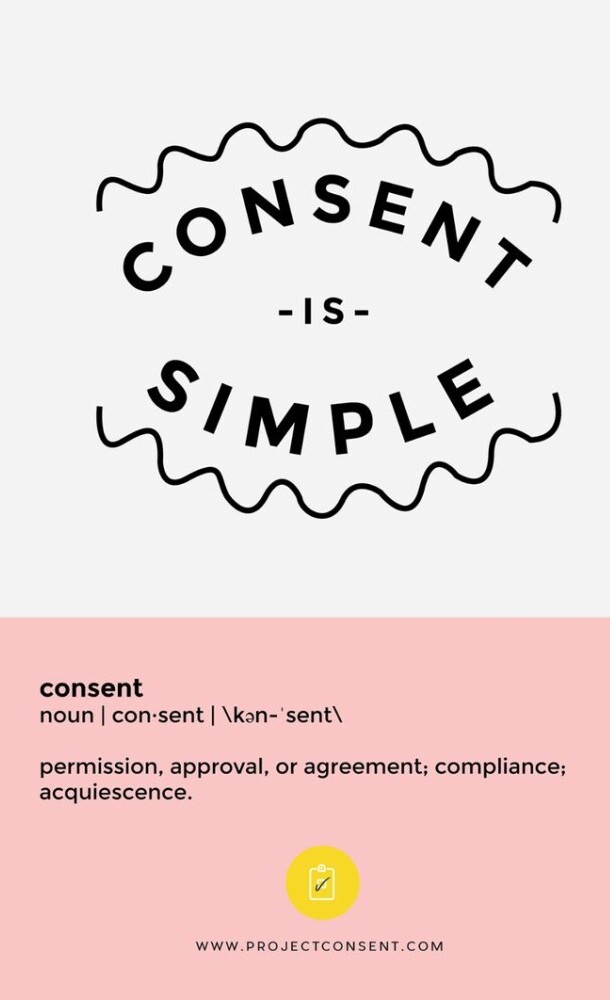
Picture Source: Pinterest
Consent education is a pivotal aspect of empowering teenage girls, particularly in communities where open discussions about personal autonomy are rare. For South Asian girls navigating adolescence, understanding consent provides a foundation for healthy relationships, self-confidence, and the ability to advocate for their boundaries. Public Service Announcements (PSAs) serve as an impactful medium to foster awareness, with culturally relevant narratives driving the conversation forward.
Historical Context: Silence and Taboos Surrounding Consent
In many South Asian households, conversations about bodily autonomy, relationships, and consent are often avoided due to societal and cultural stigmas. Girls are frequently raised to prioritize familial and societal expectations, which can result in a lack of awareness about their rights to say “no.” This silence perpetuates harmful myths and leaves many teenage girls unequipped to navigate complex interpersonal situations.
Educational initiatives and PSAs aimed at young audiences play a crucial role in breaking down these barriers. By presenting consent as a universal and non-negotiable concept, these efforts begin to challenge the deep-rooted norms that often marginalize young women’s voices.
Media as a Catalyst: The Role of PSAs in Consent Education
PSAs have emerged as a vital tool in reshaping the discourse around consent. A notable example is the Hansel and Gretel PSA from the UK, which uses the classic fairy tale to address boundaries and personal agency. In this reimagined version, the narrative portrays Gretel asserting her right to refuse, emphasizing the importance of clear, mutual agreement. The campaign speaks directly to younger audiences, making complex concepts like consent accessible and relatable.
Such creative storytelling approaches are critical for South Asian teenage girls, offering a framework to understand their autonomy within the context of familiar narratives.
Case Studies: Influential Campaigns on Consent
Beyond the Hansel and Gretel PSA, several impactful campaigns have brought consent education into focus. In South Asia, initiatives like Breakthrough India’s Consent is Everything highlight the importance of verbal and enthusiastic agreement in relationships. While this PSA specifically addresses adult relationships, its clear and straightforward messaging resonates with younger audiences as well.
Meanwhile, global campaigns like the UK Government’s Disrespect NoBody initiative directly target teenagers, promoting respect and equality in relationships. Such efforts demonstrate how PSAs can bridge cultural divides and provide universally relevant messages.
The Role of Storytelling in Empowerment
Narrative-driven campaigns like the Hansel and Gretel PSA underscore the power of storytelling in educating teenage girls about consent. By framing complex topics within relatable and culturally relevant contexts, these PSAs foster engagement and understanding. For South Asian communities, weaving traditional values with progressive messages ensures that the campaigns resonate deeply and avoid alienating audiences.
This storytelling approach also empowers girls by validating their experiences, providing role models, and creating space for dialogue within their families and peer groups.
Challenges: Addressing Cultural and Social Barriers
Despite their potential, PSAs focused on consent education often face resistance. Cultural norms and societal expectations in South Asian communities can hinder open discussions about relationships, boundaries, and personal agency. Parents may view such topics as inappropriate for teenage girls, while some educators may lack the resources or confidence to facilitate these conversations.
Moreover, teenage girls themselves might feel pressure to conform to traditional expectations, fearing judgment or backlash for asserting their autonomy. Overcoming these challenges requires culturally sensitive messaging and community-wide engagement.
Role of Influencers and Activists
Influencers and activists play a crucial role in amplifying the impact of consent-focused PSAs. Figures like Malala Yousafzai and platforms such as Brown Girl Magazine champion discussions on gender equality, personal agency, and respect in relationships. By leveraging digital platforms, these voices reach young South Asian girls directly, bridging the gap between traditional media and modern communication channels.
Their advocacy ensures that consent education is not limited to one-off campaigns but becomes part of an ongoing dialogue about empowerment and equality.
Evaluating Impact: Measuring PSA Effectiveness
The effectiveness of consent-focused PSAs can be gauged through surveys, focus groups, and real-world feedback. For example, the Hansel and Gretel PSA was praised for its creative approach, with many young viewers reporting increased awareness about boundaries and the importance of mutual respect. Similarly, local campaigns in South Asia, such as Breakthrough India’s initiatives, have shown measurable success in fostering discussions around consent within communities.
By continually assessing and refining these campaigns, organizations can ensure that their messaging remains relevant and impactful.
Future Directions: Expanding the Conversation
To better serve South Asian teenage girls, PSAs must evolve to incorporate interactive and digital elements. Social media challenges, collaboration with influencers, and user-generated content can make consent education more engaging and accessible. Furthermore, integrating consent education into school curriculums and community programs ensures that the message reaches all demographics.
Future campaigns should also focus on intersectionality, addressing the diverse experiences of South Asian teenage girls across different regions and socio-economic backgrounds. This inclusivity ensures that every girl feels seen, heard, and empowered.
Consent is not just a legal concept but a fundamental right that every teenage girl deserves to understand and exercise. Through innovative PSAs like the Hansel and Gretel campaign, combined with continued advocacy and education, we can equip South Asian girls with the knowledge and confidence to navigate their lives with autonomy and dignity. By fostering these conversations, we take a significant step toward a future where every girl’s voice is heard and respected.
No Responses